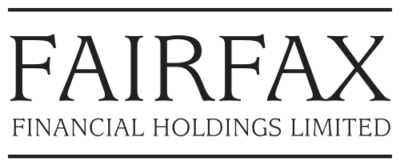The shares of Fairfax Financial Holdings Ltd. (TSX:FFH) have recovered more than 17% since their low in June. What has the company done since then to cause the turnaround?
First, here’s an overview of Fairfax Financial’s business.
The business
Fairfax Financial is a holding company of casualty and property insurance businesses, from which it generates premiums. It invests those premiums for higher returns, similar to what Warren Buffett does with Berkshire Hathaway.
At the end of the second quarter, Fairfax Financial’s investment portfolio had US$27,928 million of assets, of which nearly 40% were subsidiary cash and short-term investments, more than 26% were bonds, and more than 15% were common stocks. So, its subsidiaries have plenty of dry powder to boost their market exposure should a correction arise.

What has Fairfax Financial done since June?
In late August, Fairfax Financial agreed to sell First Capital, which is the largest commercial property and casualty insurer in Singapore, for US$1.6 billion to Mitsui Sumitomo Insurance Company, which is based in Tokyo.
If the regulatory bodies, namely the Monetary Authority of Singapore and the Financial Services Agency of the Government of Japan, approve the transaction, Fairfax Financial will be making a hefty profit.
Fairfax Financial invested in First Capital for US$35 million in 2002. From the sale, it will generate a net gain of US$900 million after tax. This represents annualized returns of roughly 25%!
Let’s not forget that while owning First Capital, Fairfax Financial generated lots of premiums from the insurer. So, the total returns will actually be more than the 25%. If all goes well, the sale will close in late 2017 or early 2018.
Fairfax Financial also plans to form a broad market partnership with Mitsui. With a meaningful quota share in First Capital, Fairfax Financial will still enjoy First Capital’s future prospects.
In late September, Fairfax Financial announced that it will continue to buy back its shares. Share repurchases are typically viewed positively, as they imply that the respective companies think their shares are discounted.
Moreover, interest rate hikes benefit Fairfax Financial due to the company’s large portfolio of fixed-income assets.
Should you buy Fairfax Financial now?
Fairfax Financial stock has delivered great returns for long-term shareholders. However, it has had a nice run-up. At about $659 per share, Fairfax Financial trades at a price-to-book ratio of just under 1.8. So, the stock isn’t exactly cheap.
It doesn’t mean that it can’t go higher from here in the near term, but cautious investors should wait for a dip to at most a price-to-book of 1.3, or ~$608 per share, based on the recent foreign exchange rate of US$1 to CAD$1.265.







